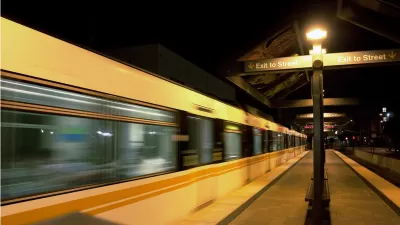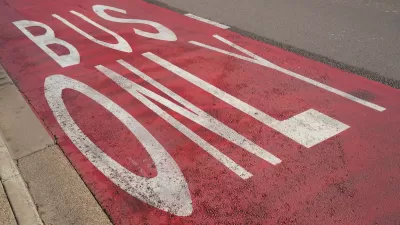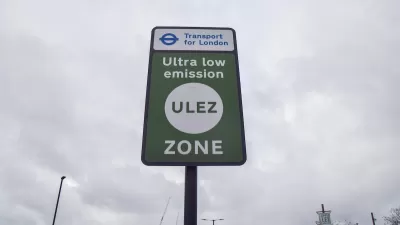Research suggests that transit subsidies produce minimal social value when combined with congestion pricing and dedicated bus lanes.

A study by Leonardo Basso and Hugo Silva uses data from the cities of London and Santiago to gauge traffic policy effectiveness. "In new research, we provide a new assessment showing that the benefits of transit subsidization are large only when optimal congestion pricing and dedicated bus lanes are not in place or when policymakers wish to give the most help to the poorest (vertical equity)."
Taken individually, subsidies still may be the best option to improve general access. From the article: "Importantly, if instead of considering direct willingness to pay we correct for income differences because of vertical equity considerations, optimal subsidization can become the best stand-alone measure, with bus lanes and congestion pricing being less substitute measures."
The trade-off between bus lanes and subsidies depends on how much value frequent service provides. "Segregating traffic through bus lanes seems to be particularly appealing, as it achieves large welfare improvements without subsidies or cumbersome car congestion tolling, affecting bus and car travellers through quality of service (speeds) instead of monetary prices."

Alabama: Trump Terminates Settlements for Black Communities Harmed By Raw Sewage
Trump deemed the landmark civil rights agreement “illegal DEI and environmental justice policy.”

Study: Maui’s Plan to Convert Vacation Rentals to Long-Term Housing Could Cause Nearly $1 Billion Economic Loss
The plan would reduce visitor accommodation by 25% resulting in 1,900 jobs lost.

Why Should We Subsidize Public Transportation?
Many public transit agencies face financial stress due to rising costs, declining fare revenue, and declining subsidies. Transit advocates must provide a strong business case for increasing public transit funding.

Wind Energy on the Rise Despite Federal Policy Reversal
The Trump administration is revoking federal support for renewable energy, but demand for new projects continues unabated.

Passengers Flock to Caltrain After Electrification
The new electric trains are running faster and more reliably, leading to strong ridership growth on the Bay Area rail system.

Texas Churches Rally Behind ‘Yes in God’s Back Yard’ Legislation
Religious leaders want the state to reduce zoning regulations to streamline leasing church-owned land to housing developers.
Urban Design for Planners 1: Software Tools
This six-course series explores essential urban design concepts using open source software and equips planners with the tools they need to participate fully in the urban design process.
Planning for Universal Design
Learn the tools for implementing Universal Design in planning regulations.
Caltrans
Smith Gee Studio
Institute for Housing and Urban Development Studies (IHS)
City of Grandview
Harvard GSD Executive Education
Toledo-Lucas County Plan Commissions
Salt Lake City
NYU Wagner Graduate School of Public Service





























